International Health Insurance
Gain valuable insights and practical tips for navigating international health insurance while living abroad. From coverage details to expert advice, this comprehensive guide helps travelers…

International medical cover for expats and their families.
Medical and trip cancellation coverage for international travel.
Life insurance for globally mobile individuals living or working abroad.
Comprehensive international medical coverage for groups.
Medical, accident, and liability protection for global travel.
Financial protection for employees worldwide.
Most Popular Country Guides
Healthcare, insurance, and living insights to plan life and travel in each destination.
Healthcare, safety, and practical guidance for living abroad.
Tips and guidance for safer, smarter international travel.
Resources for global mobility, HR, and international teams.
Discover the cheapest countries to live in for expats in 2026, which offer low living costs, vibrant culture, and a high quality of life.
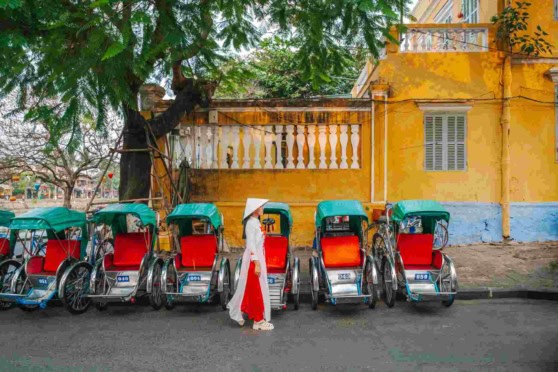

Many people assume that living abroad requires a hefty budget, but in reality, anyone can enjoy a fulfilling expat life without spending a fortune. According to the most recent InterNations Expat Insider Survey, Vietnam, Colombia, Panama, China, and Thailand are among the cheapest countries to live in.
However, it’s not just the low cost of living that makes these locations attractive. Friendly locals, rich cultural experiences, and a high quality of life make them ideal for anyone seeking a rewarding life abroad. So, if you’re considering a fresh start overseas, these budget-friendly destinations should be at the top of your list.

We utilized the latest cost-of-living figures from LivingCost.org and survey data from the InterNations Expat Insider 2025 Survey’s ‘Personal Finance Index’ to determine the most affordable countries for expats.
The following destinations combine affordability with culture, amenities, and lifestyle, making them ideal choices for anyone considering a move abroad.
This captivating Southeast Asian gem has secured first place for the fifth consecutive year. According to the Expat Insider Survey, 89% of expats reported being satisfied with the cost of living in their host country. Moreover, 87% said their disposable income is enough to lead a comfortable life.
With affordable living, world-famous cuisine, and vibrant cities, Vietnam is a top choice for budget-conscious expats. In fact, that might be why 30% say they plan to stay forever!
Major cities like Hanoi and Ho Chi Minh City offer tantalizing food scenes, diverse shopping options, and modern amenities. Monthly living expenses for one person, including rent, average around $616.
Additionally, housing costs are far cheaper than in neighboring countries like Singapore, Thailand, or Malaysia, yet the quality remains high.
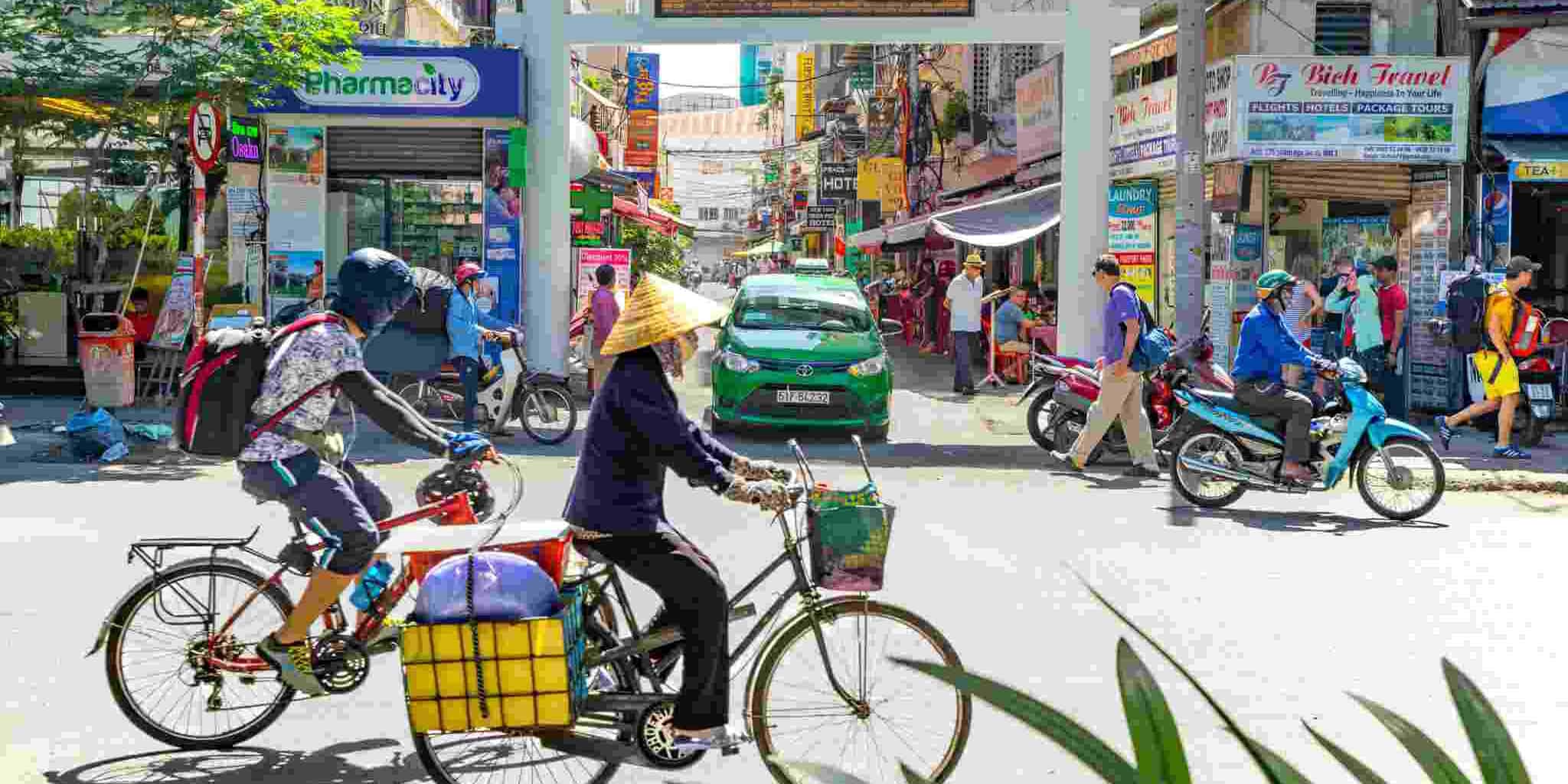
Getting around is also convenient and affordable, with public transport, including buses, trains, and motorbike taxis (Xe Ôm), costing around $50 per month.
However, one key financial aspect to budget for is healthcare. Vietnam’s healthcare system is undergoing significant reforms as the government works toward providing universal coverage, although it is not yet fully implemented. As a result, most residents still pay out of pocket for services at public and private hospitals.
Public hospitals are often under-equipped and may offer lower-quality care. Because of this, many expats purchase private health insurance in Vietnam to ensure access to better facilities, shorter wait times, and English-speaking doctors.
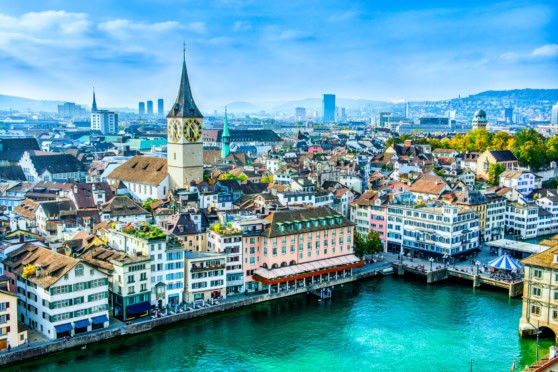
Colombia remains one of the most affordable countries to live in, with 92% of expats stating that their disposable income is sufficient or more than enough to lead a comfortable life.
Interestingly, 25% of respondents are retired, and 69% earn $50,000 USD or less annually, making the country especially attractive for budget-conscious expats.
Monthly expenses for one person average around $789, which is significantly lower than in the United States ($2,504).
Major cities like Bogotá, Medellín, and Cartagena offer modern amenities, excellent cuisine, and vibrant cultural experiences, while maintaining living costs significantly lower than those in cities in the U.S., U.K., and most of Europe.
Transportation is also convenient and inexpensive, with monthly costs for buses, taxis, bicycle rentals, and Medellín’s metro and cable cars averaging around $106 per person. That said, some cities, such as Cartagena, are highly walkable, making it easy to explore on foot.
While Colombia may rank lower for safety compared to some other expat destinations, there are plenty of low-crime areas. Among the safest are Manizales and the stunning coastal city of Cartagena.
Despite offering some of the lowest out-of-pocket healthcare expenses in the world, many expats choose private health insurance in Colombia to access faster, higher-quality care.
Panama ranks 3rd in the ‘Personal Finance Index’ and remains the overall winner of the Expat Insider Survey for the second year, reflecting its affordability and high expat satisfaction.
Monthly living expenses average around $1,277 per person, making it a top choice for retirees and budget-conscious expats alike.
According to the survey, 87% of expats report that their disposable income is sufficient or more than adequate to live comfortably, and 78% are satisfied with their financial situation.
Additionally, more than a third of expats (35%) are retired, and almost a quarter (24%) plan to stay there permanently.

Expats are drawn to Panama for its low cost of living, favorable tax laws, and warm climate. The country offers a variety of lifestyles, from the vibrant city life of Panama City to the relaxed pace of beach towns like Coronado or Bocas del Toro.
Safe cities are common, especially along the Pacific and Caribbean coasts, and foreigners can legally purchase property.
Panama also offers high-quality healthcare, featuring modern facilities, well-trained doctors, and numerous English-speaking practitioners, particularly in private hospitals and clinics.
While public healthcare is available and affordable, it can have longer wait times and limited services in some areas.
As a result, many expats purchase private health insurance in Panama to access faster care, a wider range of treatments, and English-speaking staff.
China has made steady gains in the ‘Personal Finance Index’, rising from 10th place in 2024 to 4th in 2025.
Monthly living expenses average around $649 per person, making it one of the cheapest countries to live in for expats.
Only 6% of expats now say their disposable income is insufficient to lead a comfortable life, down from 18% last year.
Foreigners are drawn to the country’s rich cultural heritage, diverse landscapes, vibrant cuisine, and growing economic opportunities.
They also benefit from easy access to other popular destinations in the region, such as Japan, Thailand, Taiwan, and South Korea. That said, newcomers should be prepared for cultural differences and, in some areas, language barriers.
Healthcare in China includes both public and private options. Public hospitals are widely available, but wait times can be lengthy, and staff may be limited in their English proficiency.
Therefore, many expats choose private health insurance in China, which grants them access to higher-quality care, shorter waits, and English-speaking doctors.
Thailand ranked 5th in the ‘Personal Finance Index’, making it one of the cheapest countries to live in Southeast Asia.
Monthly living expenses average around $877 per person, with transportation costs averaging about $109.
Major cities offer convenient options, including buses, metro trains, taxis, tuk-tuks, and ride-sharing apps. Meanwhile, domestic flights, ferries, and trains make traveling between islands and other regions easy.
The “Land of Smiles” offers a variety of lifestyles to suit different preferences, from bustling cities like Bangkok and Chiang Mai to quieter beach towns such as Hua Hin and Koh Samui.

Major cities offer extensive amenities, entertainment, public transportation, and international schools, while smaller cities remain more affordable without compromising on quality facilities.
Family and community are central to Thai life, often with multiple generations living together. The country’s joyful culture, embodied in the concept of Sanuk (“fun”), is evident in festivals such as Songkran, Yi Peng, and Loy Krathong.
However, one challenge expats may face in Thailand is finding work, as many jobs are reserved for Thai nationals. For this reason, it’s best to secure employment before moving. Learning a few basic Thai phrases also helps with daily life and building connections with locals.
Thailand’s healthcare system includes the Universal Coverage Scheme (UCS) for citizens. However, most expats rely on private care by purchasing health insurance in Thailand, particularly in major cities such as Bangkok, Chiang Mai, and Phuket.
Despite dropping from 3rd place in 2024 to 6th in the ‘Personal Finance Index’, Indonesia remains one of the top 10 cheapest countries to live in for expats.
While concerns about career opportunities, healthcare quality, and infrastructure – such as crowded hospitals and air quality – have influenced this ranking, the country’s low cost of living and appealing lifestyle continue to make it a popular choice in Southeast Asia.
Monthly expenses average around $583 per person, with food costs at approximately $215 and transportation costs at roughly $43. Jakarta offers buses and commuter trains, while scooters and motorbike taxis (ojeks) are common.
Cities like Jakarta and Bali provide jobs in tourism, IT, business, and healthcare, and the latter has become a hub for digital nomads seeking a relaxed lifestyle with reliable internet.
Expat families are drawn to neighborhoods with international schools that offer English-language curricula and prepare students for universities worldwide.
Indonesia also boasts a rich cultural and religious heritage influenced by Middle Eastern, Chinese, Indian, and European traditions. Islam shapes daily life and observances, such as Ramadan.
Recreational activities such as badminton, martial arts, and kite flying are popular, and the tropical climate allows for year-round outdoor enjoyment.
Healthcare is most accessible through private facilities, as public hospitals can be crowded and have long wait times. This prompts many expats to purchase health insurance in Indonesia.
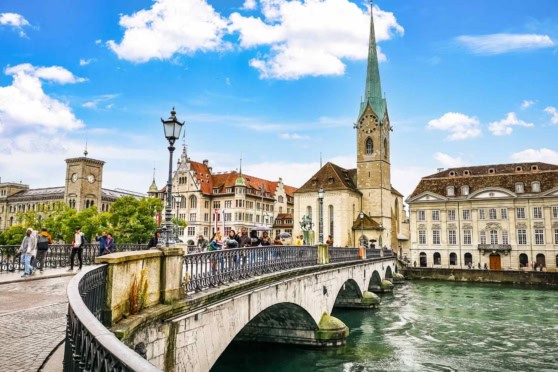
Despite dropping from 5th place in 2024 to 7th in 2025, the Philippines remains among the top 10 most affordable countries for expats.
Monthly living expenses average around $619 per person. Food costs about $247, and transportation roughly $35, making it an accessible destination for those on a budget.
Known as the “Pearl of the Orient Seas,” the country is famous for its stunning beaches, lush rainforests, and mountains, which attract both nature lovers and adventurers.
While Manila offers modern amenities and a bustling urban lifestyle, cities like Cebu and Davao provide a more relaxed pace with good infrastructure, international schools, and vibrant expat communities.
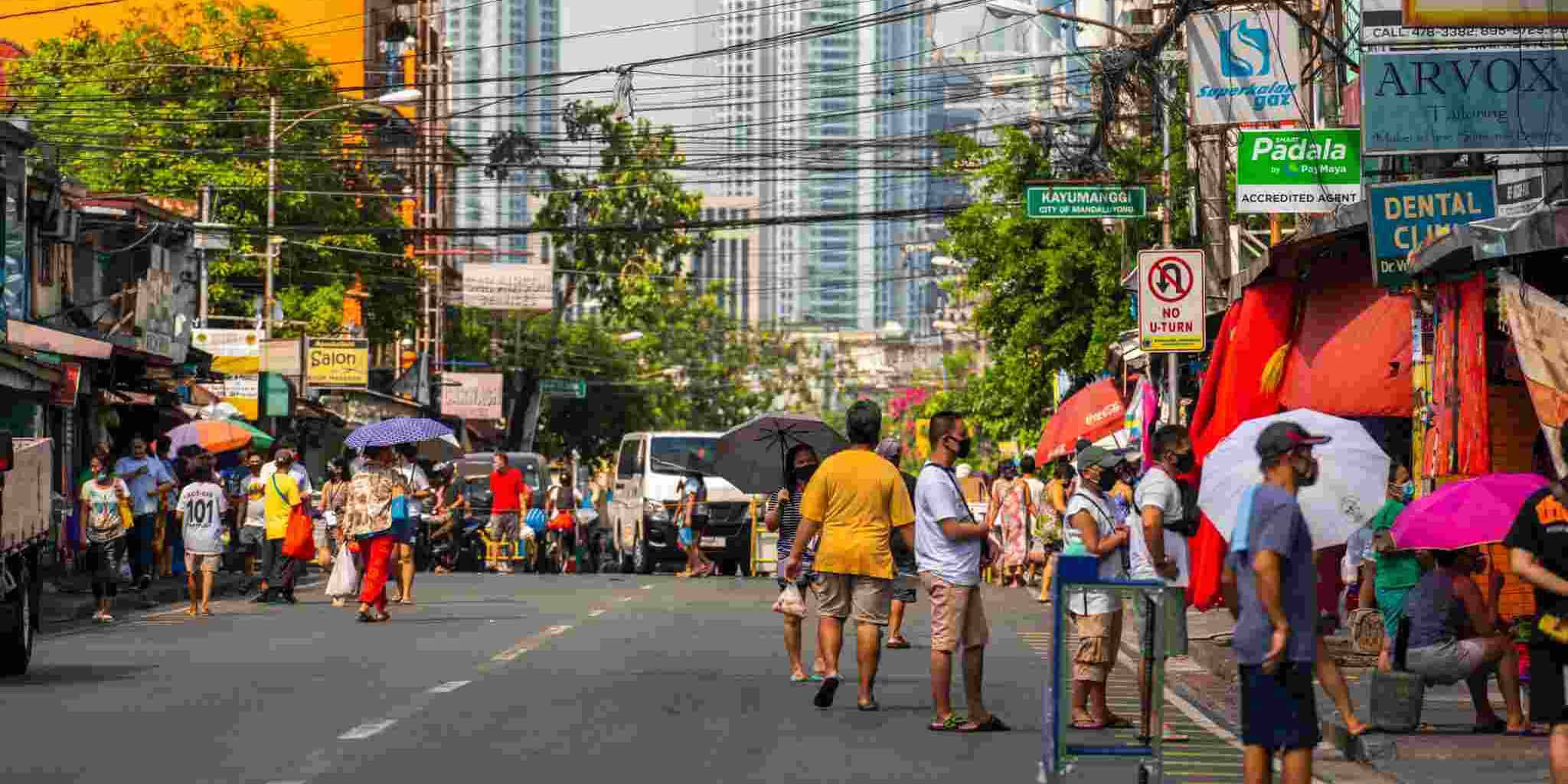
Island destinations like Palawan, Boracay, and Bohol are also popular for their natural beauty, outdoor activities, and welcoming local culture.
Despite facing challenges such as natural disasters and less-developed rural infrastructure, the warmth and friendliness of the Filipino people help expats feel at home. Many communities are tight-knit, family-oriented, and open to newcomers, making it easy to build social connections.
Healthcare in the Philippines is a mix of public and private options. Public hospitals are affordable but can be crowded, especially outside major cities, so many expats choose private care or health insurance in the Philippines.
Major urban centers like Manila and Cebu offer modern facilities and specialist care, ensuring reliable healthcare for those who opt for private services.
Mexico once again ranks among the cheapest countries to live in for expats, attracting retirees, digital nomads, and long-term residents alike.
Monthly living expenses average around $978 per person, making life significantly more affordable than in the US, Canada, or the UK.
Transportation is generally inexpensive, too, costing around $84 per person. Major cities offer buses, metro systems, and microbuses, while taxis, ride-sharing services, and rental cars are more common outside urban centers.
Like Panama and Colombia, a significant share of expats in Mexico are retired (31%), and financial satisfaction may be a key factor in why 39% plan to stay permanently.
Life in Mexico is vibrant yet relaxed. Cities such as Mexico City, Guadalajara, and Monterrey offer a range of modern amenities, including shopping, dining, and cultural attractions.
Meanwhile, smaller cities and coastal areas, such as Mérida, Oaxaca, San Miguel de Allende, Puerto Vallarta, Los Cabos, and the Riviera Maya, combine lower living costs with rich culture and welcoming expat communities.
Mexican culture places a strong emphasis on family, community, and celebration. Multi-generational households are common, and festivals such as Día de los Muertos, Christmas, and local fiestas are integral to daily life.
The country also boasts a rich culinary scene, from street tacos to fine dining, reflecting its diverse heritage. Expats from North America or Western Europe may initially find the pace of life slower. However, the emphasis on living in the moment often becomes one of the country’s greatest appeals.
Healthcare in Mexico encompasses a combination of public, private, and employer-based options. The universal system provides free or heavily subsidized care to Mexican nationals, and legal residents can access public healthcare through programs like IMSS.
However, many expats opt for private health insurance in Mexico to access higher-quality care, particularly in major cities.
Malaysia enters the top 10 in the ‘Personal Finance Index’, rising from 11th place in 2024.
Known for its affordability, modern infrastructure, and multicultural cities, it is increasingly popular among expats seeking a high-quality lifestyle at a reasonable cost.
Monthly living expenses are generally lower than in Western countries, averaging around $978 per person. Food costs are approximately $365, and transportation costs are roughly $84, making it an attractive destination for retirees, digital nomads, and working professionals.
Getting around is convenient and affordable, thanks to extensive bus networks, ride-hailing apps, and commuter trains that connect major urban centers. This makes it easy for expats to explore everything from vibrant cities to coastal regions and tropical islands.

Cities like Kuala Lumpur and Penang offer a range of modern amenities, including shopping, dining, and international schools. Meanwhile, smaller towns provide a more relaxed pace and lower costs.
Malaysia’s diverse culture, influenced by Malay, Chinese, and Indian traditions, is reflected in its festivals, cuisine, and daily life. Family and community are central, and the country’s warm, welcoming atmosphere helps expats settle in quickly.
Healthcare is well-regarded, with low-cost public facilities and a robust private sector. Many expats choose private health insurance in Malaysia, ensuring reliable care and peace of mind.
Despite slipping from 9th place in 2024 to 10th in 2025, Brazil remains among the 10 cheapest countries to live in for expats.
Monthly expenses average around $725 per person, and rents are about 81% lower than in the United States. This makes Brazil an especially attractive destination for Americans seeking a lower cost of living without sacrificing quality of life.
The country’s vibrant culture, welcoming people, and low cost of living continue to draw expats from around the world.
From vibrant Carnival celebrations to a national passion for soccer, music, and dance, Brazil’s rich cultural life offers numerous opportunities for engagement. Family and community are central, helping newcomers integrate socially.
Cities like Florianópolis, Curitiba, and Porto Alegre are known for their high quality of life, safer environments, and relatively low-cost housing compared with Rio de Janeiro or São Paulo.
Coastal towns such as Natal and Salvador offer a more relaxed lifestyle, beautiful beaches, and lower costs. This makes them particularly appealing to retirees and remote workers.
While Brazil offers numerous lifestyle benefits, safety concerns may arise in certain regions. As a result, it’s important to research neighborhoods carefully and remain vigilant in public spaces.
Healthcare is accessible through both public and private options. Public hospitals provide affordable care, but wait times and service quality can vary.
As a result, many expats choose private or international health insurance to access faster and better care. This is particularly true in major cities like São Paulo, Rio de Janeiro, and Brasília.
No matter where you choose to move, there will always be pros and cons to living in one of the world’s most affordable destinations.
For example, infrastructure and education standards may not meet the same level you’re accustomed to back home. Additionally, you may need to adjust to things you take for granted, such as access to clean drinking water or 24-hour convenience stores.
However, if you decide to relocate to one of the cheapest countries to live in, the significantly lower costs will allow you to enjoy a higher quality of life for much less than you’d pay at home.
That said, while living in an affordable destination can improve your lifestyle, it’s still essential to protect your health. In many of these countries, access to healthcare may not always meet the standards to which you’re accustomed.
This is where international health insurance can make all the difference, ensuring you have access to quality care, regardless of your location.
With comprehensive coverage, you can enjoy peace of mind while living abroad, knowing you’re protected in case of any health issues.
